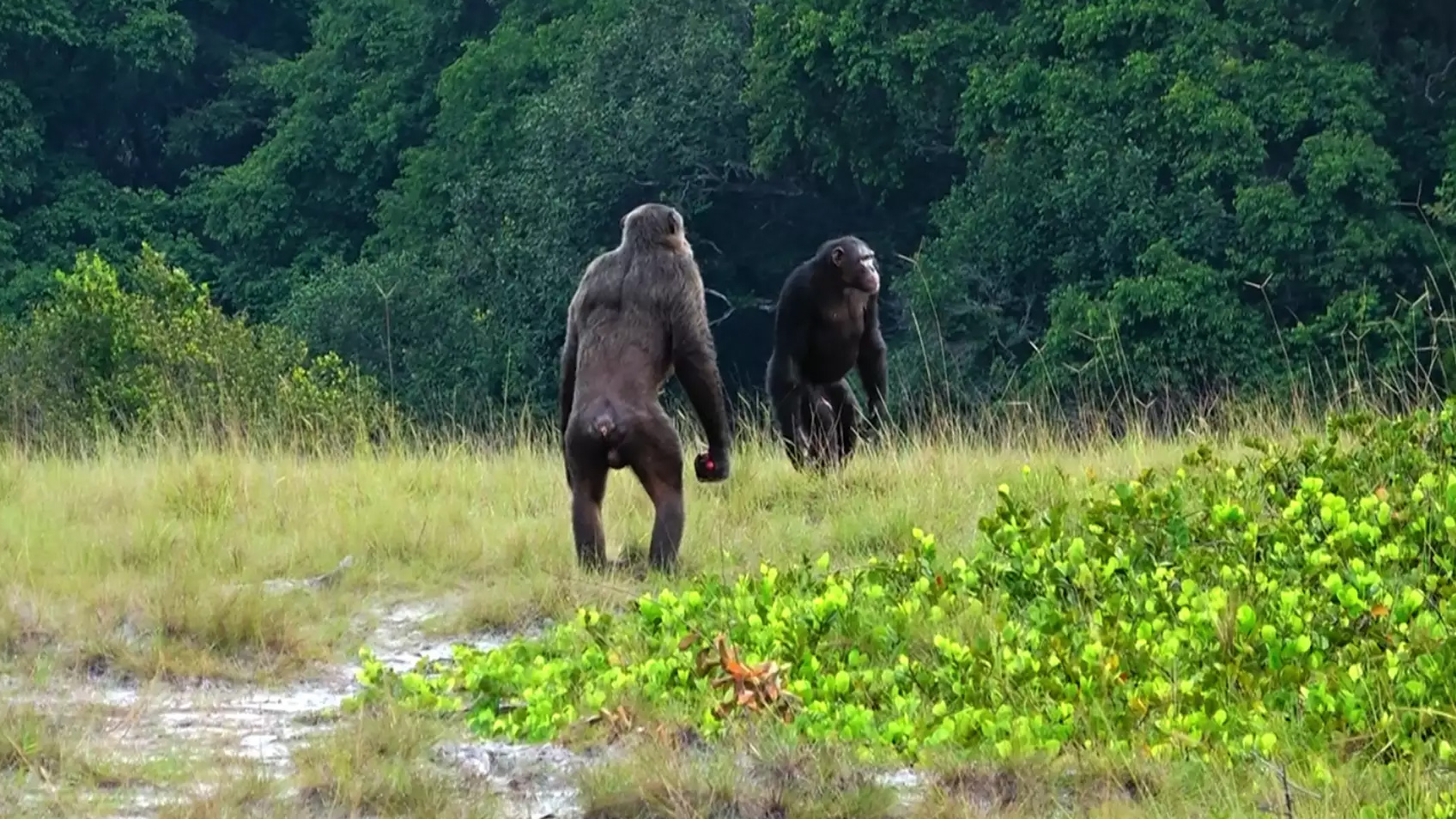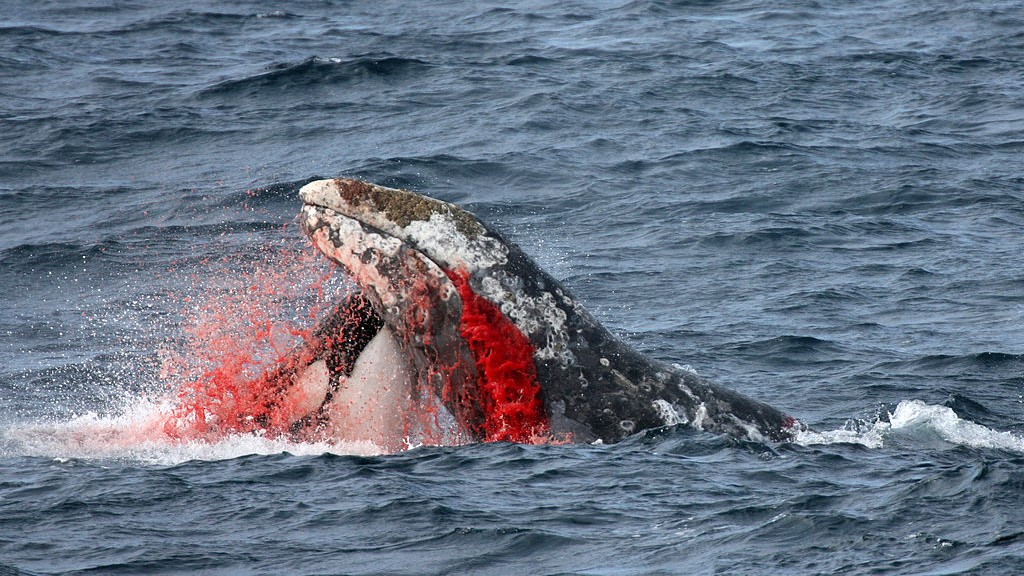Chimpanzee troop beats and kills infant gorillas in unprecedented clash (Video)
The gorillas fought back but they were overwhelmed.
Scientists have witnessed chimpanzees killing gorillas for the first time in two shocking attacks caught on video at a national park in Gabon on the west coast of Central Africa, a new study finds.
The researchers, from Osnabrück University and the Max Planck Institute for Evolutionary Anthropology in Germany, were following a massive group of 27 chimpanzees (Pan troglodytes) on Feb. 6, 2019 when they first observed the chimps attack a party of five western lowland gorillas (Gorilla gorilla gorilla) — three adult females and one infant, led by a male silverback.
"The silverback was really throwing some of the chimps in the air, so he was really trying to protect himself and his group," study co-author Simone Pika, a cognitive biologist at Osnabrück University, told Live Science. Despite injuring three chimpanzees, the silverback was overwhelmed and the chimps ultimately captured the group's infant and beat it to death.
The same group of chimpanzees attacked gorillas again in December of that year and killed another infant gorilla. "It tells us something about the violent potential of chimps, about their behavioral diversity, but also of their cooperative abilities," Pika said.
Related: Photos: See gorillas and chimpanzees in their native forests
Chimpanzees and gorillas normally coexist peacefully where their ranges overlap in the rainforests of Central Africa. The two ape species typically avoid one another, and even feed on the same fruit trees, without conflict, according to Pika. Chimps, however, aggressively defend their territories against other chimpanzees and are known to kill members of rival chimp groups.
The research team was following the chimpanzees responsible for the gorilla killings as part of a long-term study into chimp behavior in Gabon's Loango National Park. The chimps were returning from a territory patrol when the first attack occurred.
Get the world’s most fascinating discoveries delivered straight to your inbox.
"At first, we only noticed screams of chimpanzees and thought we were observing a typical encounter between individuals of neighboring chimpanzee communities," first author Lara M. Southern, a doctoral student at Osnabrück University, said in a statement. "But then, we heard chest beats, a display characteristic for gorillas, and realized that the chimpanzees had encountered a group of five gorillas."
The February encounter lasted 52 minutes, and the gorillas were forced to retreat without their infant. The researchers do not know whether or not the second incident in December involved a different group of gorillas. The researchers published their findings Monday (July 19) in the journal Scientific Reports.
Pika can only speculate on why these unprecedented attacks occurred. Chimps do sometimes hunt animals such as monkeys, and they may have taken the opportunity to kill the small gorillas for food. However, the chimps did not exhibit normal hunting behavior, according to Pika. For example, they only ate one of the infant gorillas and it was almost entirely consumed by one chimp rather than shared.
The attacks may be driven by food competition. Fruit is scarce for chimps and gorillas in February and December, when the attacks occurred, so there is increased competition for it. Climate change is also reducing the amount of fruit available in the Gabon rainforest, something that could be creating even more competition, and therefore driving these aggressive interactions.
The research team will now investigate the possible causes and continue to monitor chimp behavior. "We still have not fully understood chimpanzee behavior and for me this is so amazing," said Pika. "We know already so much about the diversity of chimpanzee behavior, but then suddenly they surprise us again."
Originally published on Live Science.

Patrick Pester is the trending news writer at Live Science. His work has appeared on other science websites, such as BBC Science Focus and Scientific American. Patrick retrained as a journalist after spending his early career working in zoos and wildlife conservation. He was awarded the Master's Excellence Scholarship to study at Cardiff University where he completed a master's degree in international journalism. He also has a second master's degree in biodiversity, evolution and conservation in action from Middlesex University London. When he isn't writing news, Patrick investigates the sale of human remains.



